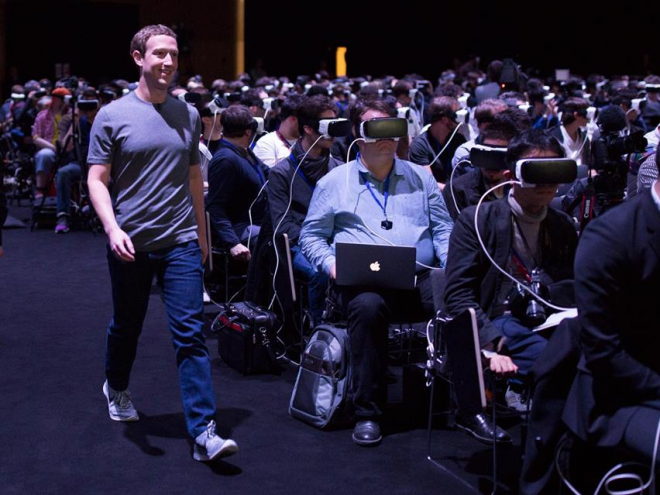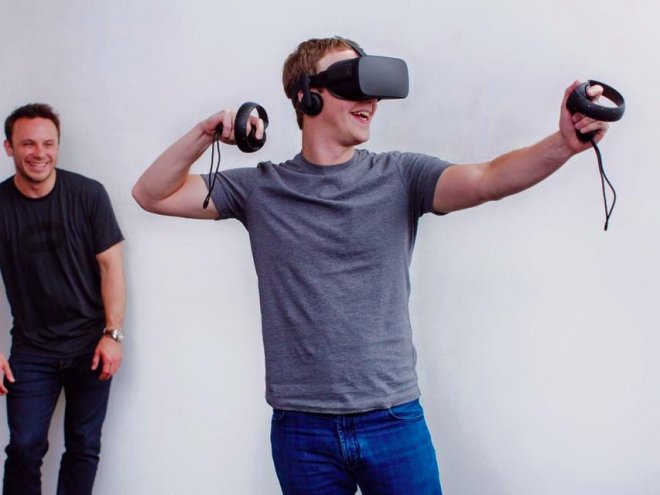Facebook Chief Executive Officer Mark Zuckerberg took to the witness stand in Dallas Federal Court on Tuesday and denied all allegations of Oculus stealing virtual reality technology from ZineMax.
A few years ago, Zuckerberg, one of the finest tech visionaries, made a huge bet on a very new technology, virtual reality or VR, and bought Oculus, one of the most prominent startups in this field for over $2 billion.

Videogame publisher ZeniMax Media Inc filed a case against Oculus in 2014, in the middle of the Facebook-Oculus deal. ZeniMax said that Oculus unlawfully used its intellectual property to develop the virtual-reality system that includes the Rift headset.
While testifying for the first time in a court room, Zuckerberg denied that Oculus has used any technology that was not its own in the making of Oculus virtual reality headset. He also said that virtual reality will take another five to 10 years to take the proper shape, as we expect.
The Oculus lawsuit, in the sixth day of a jury trial, relates in part to programmer John Carmack. Carmack is well-known for contributing greatly in developing games like Quake and Doom. He worked for id Software LLC before that company was acquired by ZeniMax and now John Carmack is the Chief Technology Officer at Oculus.
So, now ZeniMax accuses Carmack of using computer codes from his previous position to create products for his new employer. Zuckerberg completely denied this accusation and said, "There is no shared code in what we do."
The Oculus acquisition was more expensive than the $2 billion price tag indicated, Zuckerberg said in court, describing $700 million spent to retain employees and $300 million in payouts for reaching milestones. Oculus originally wanted $4 billion, he said.
"It's pretty common when you announce a big deal that people just come out of the woodwork and claim they own some part of the deal," Zuckerberg said.
On the stand, he also gave details about Facebook's $22 billion purchase of messaging service WhatsApp in 2014. While the deal was in progress, another company he did not identify made a last-minute bid that was higher, Zuckerberg said, but WhatsApp declined because of its good relationship with Facebook.
During one heated exchange with ZeniMax lawyer Tony Sammi, Zuckerberg told the jury in the crowded courtroom that the technology was not even fully formed when Facebook bought it. "Improving on that technology doesn't make it yours," Sammi countered. "If you steal my bike, paint it and put a bell on it, does that make it your bike?"
Zuckerberg, wearing a dark suit and striped tie rather than his typical T-shirt and jeans, answered, "no," but then added: " "The idea that Oculus products are based on someone else's technology is just wrong."
The 32-year-old Facebook founder has spoken about virtual reality as an important part of the company's future business, especially as the technology becomes less expensive and its uses clearer. Zuckerberg also informed the court that Facebook might have to spend another $3 billion in the next decade to reach its goal of providing hundreds of millions of people the experience of virtual reality.
He explained how he recorded his daughter's first step with VR technology so that her grandparents could experience it as it is and that is what the Facebook CEO said he wants for everybody, to capture and relive a moment as it is. "We want to get closer to this kind of perfect representation, so you can capture a moment you had," he said.

Later, a Facebook spokeswoman said that nothing had changed about the company's commitment to virtual reality. "As we've said for years, VR is the next computing platform, and Facebook's Oculus team is leading the way," said the spokeswoman, Tera Randall.









